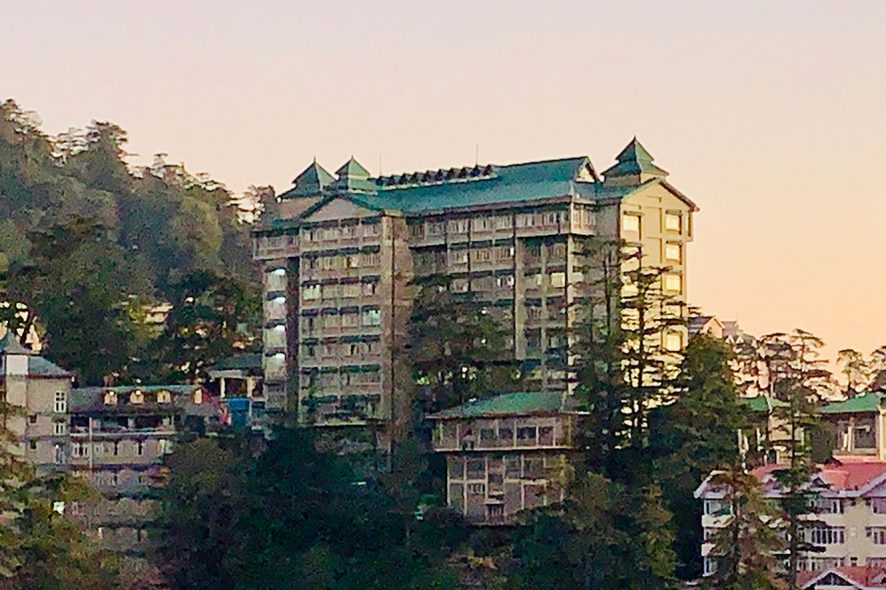Himachal Pradesh High Court: An appeal was contemplated by Vivek Singh Thakur, J. arising out of a civil suit where the appellant was sued for recovery of damages amounted to Rs 10 lakh on account of the death of a child due to negligence. The appellant hence challenged the judgments in the instant appeal.
Factual matrix of the case was that a decree was passed in favor of the respondent in the original civil suit, where it was held that the girl who was a trainee at Co-operative Management Course went to Chamba to study Chamera Project and was standing near a tunnel, officials of appellant had opened the gates of water all of a sudden without any warning only by blowing siren, due to the sudden water outburst the girl washed away in the water and died. The respondent had contended that due to the negligent act of the appellant the girl died and they were liable to compensate. The respondent had argued that the appellant had failed to warn the visitors and also allowed the students to visit a site which was located in danger zone.
Appeal was filed on the ground that for want of sufficient material on record, learned District Judge had committed a mistake by holding that accident had taken place on account of sheer negligent act on the part of officials of the appellant as respondent had failed to place on record any permission to visit Dam area and deceased daughter of plaintiff was herself negligent for entering in the prohibited area despite warnings published on signboards affixed on the spot and adequate steps had already been taken by the appellant to warn the intruders from going in the Dam area and area was duly fenced. Further that in case it is found that there was some negligence on the part of the appellant, then, the amount of compensation was liable to be reduced as it had been determined on the higher side without any sufficient material on record and thus it is contended that impugned judgment suffers infirmity, illegality, irregularity and perversity.
The respondent in the instant appeal is the mother of the girl who also contested that she was dependent on the income of the girl for her day to day expenditure. It was submitted that the monthly income of the girl was Rs 8500 before the incident from a different source and after the completion of the course she was to get Rs 12000 as her monthly salary.
On the contrary, the appellant had submitted that the claim of the respondent was not maintainable and the story narrated was wrong. It was alleged that silt was collected in the dam area the same was to be flushed out and gates of flushing tunnels were required to be opened and flushing gates were opened after incorporating entries in the logbook by the officials concerned and as per practice as and when gates were required to be opened, Supervising Officer deputes subordinate employees for opening the gates from the control panels after informing Security Guard, who was deputed at the flushing outlet at Bakani around the clock and on receiving information siren is blown thrice by Security Guard and thereafter employees go back to control panels and open the gates. It was further claimed that for the orders, notified by the District Magistrate, gates can be opened at any time without notice and people have been cautioned not to go in the river even at the time when there is no flow of water and further that girls washed away in incident, who were warned and sent back by the Security Guard, had possibly sneaked into the place and went into the river and despite blowing of siren they did not come out and unfortunately were washed away in the water of flushing tunnels and these girls were trespassers in the area in question. It is canvassed that these girls were grown up and were able to understand the perils involved.
The trial court had already decided the matter in favor of the respondents and a total sum of Rs 7 lakhs was imposed upon the appellant.
In the instant appeal, the appellant had placed witness who had testified that the girl was not having the said permission to visit the dam area but Court held that the photographs showing the particular fenced area was not the area of the incident. The Court noted that there was wire fencing and warning boards on the spot and hence it substantiated the plea of the appellant that adequate steps by fencing and boards were taken to prevent the incidents. It was further noted that the girl was not having any permission to visit the area. Court observed that the gates were opened by the orders of the Chief Engineer but there was no documentary evidence and the order alleged was verbally communicated.
The Court thus further observed that the fencing was completed after the accident; it was held that, “It is evident that there is no force in the contentions raised by the appellant that there was no negligence on their part.” Hence, the appeal was dismissed and the quantum of compensation was increased. [NHPC v. Rukmani Devi, 2019 SCC OnLine HP 1469, decided on 06-09-2019]






